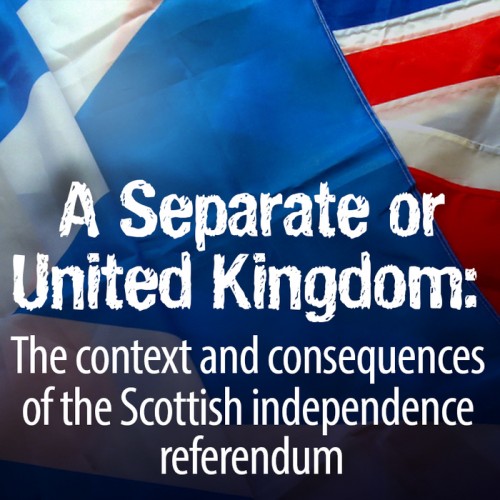 When the Scottish government released its White Paper outlining what an independent Scotland might look like, migration policy was a small but essential element of it.
When the Scottish government released its White Paper outlining what an independent Scotland might look like, migration policy was a small but essential element of it.
The White Paper promises a change in the direction of travel in migration policy for an independent Scotland. In recent years the UK has enacted a number of measures restricting various migration flows, and the present government aims to reduce net migration – the difference between immigration and emigration – below 100,000 annually. The White Paper outlines a vision for a set of migration policies that encourage skilled migrants to come to and remain in Scotland, in order to meet different demographic and economic objectives, which it explicitly contrasts with the present ‘Westminster approach’.
The White Paper outlines several means toward these ends. An independent Scotland would implement a Points-Based System (PBS), in which prospective immigrants receive points for meeting a variety of conditions, and can get a visa if they have enough points. The UK currently operates a Points-Based System as well, but the outcome of a system depends on how points are allocated. A points-based system can take a ‘human capital’ approach, encouraging high-skilled migration by giving points for advanced degrees, language abilities, needed skills and the like, without requiring the high-skilled migrant to have a job offer in advance. Or it can be exclusively employer-driven, by linking immigration visas to job offers in hand (as well as requiring certain levels of skills, qualifications, or income). The current UK system has curtailed the human capital element of its PBS; the White Paper suggests that an independent Scotland would reverse this trend in policy.
One specific step proposed is the reinstitution of the Post-Study Work visa, which would allow non-EU nationals to stay on in Scotland after attaining a graduate or postgraduate degree in order to seek work. This was scrapped by the current UK government as part of its drive to reduce overall net migration, in this case by making it more difficult for non-EU nationals to stay on in the UK after a course of study.
The White Paper also proposes using its PBS to encourage migration toward more remote areas of Scotland that may need an enlarged workforce or particular sets of skills that are in short supply. Although it is not entirely clear how this will work in Scotland, there is precedent for including such incentives in migration policy, particularly in Canada. (See the Migration Observatory policy primer “Sub-National Immigration Policy: Can it Work in the UK?“)
Encouraging high-skilled migration is an important goal in the migration section of the White Paper, but not the only one. The paper also proposes a Scottish Asylum Agency, emphasising the distinction between asylum and immigration, and promising ‘robust, fair, socially responsible’ decision-making on asylum cases. And the paper addresses the issue of passport controls at borders. Scotland would seek to remain part of the existing Common Travel Area with UK and Ireland, so that passports would not be needed to travel between England and Scotland. It would not seek to enter the passport-free Schengen zone that many EU countries share.
Finally, the White Paper takes up the related issue of Scottish citizenship. Obviously, Scottish citizenship, as distinct from British citizenship, would be a result of a vote for independence. But the contours of Scottish citizenship, in terms of what rights and responsibilities it would confer, are a complex matter to be worked out. In relation to migration, however, what needs to be defined is eligibility for citizenship: who is granted citizenship automatically, who is eligible for it, and who would be outside its bounds and therefore would have to enter Scotland as a migrant or visitor.
The White Paper claims to offer an ‘inclusive model of citizenship’, and lives up to this billing in several respects. First, automatic citizenship would be extended to British citizens who are ‘habitually resident’ in Scotland, and to British citizens who were born in Scotland, even if they are currently living outside of Scotland.
Second, other groups would be eligible to apply for citizenship, on grounds of descent and/or residency. People with Scottish descent (a parent or grandparent who qualifies for Scottish citizenship) would be able to apply for Scottish citizenship. Likewise, anyone who has lived in Scotland for at least 10 years at any point in their life and can show a ‘demonstrable connection’ to Scotland could apply for citizenship. The nature of this connection, and how it could be demonstrated, is not defined in the White Paper.
Finally, migrants residing legally in Scotland on ‘qualifying visas’ would have the option to apply for Scottish citizenship. The White Paper suggests there would be requirements of residency, good character, and perhaps further requirements as developed in Scottish immigration law.
In an independent Scotland governed by this vision of citizenship, there would be multiple ways to become Scottish: through residency, or ancestry, or prior British citizenship, however that might have been acquired. These options combine the two major logics of citizenship, the logics of ‘soil’ (jus soli) and of ‘blood’ (jus sanguinis). Moreover, residence on Scottish territory, even without being born in Scotland or of Scottish ancestry, can be a qualification for citizenship as well. The White Paper thus proposes a rather inclusive citizenship regime.
Related material
- Scottish government White Paper – Scotland’s Future: Your Guide to an Independent Scotland
- Migration Observatory policy primer – Sub-National Immigration Policy: Can it Work in the UK?
- Migration Observatory written evidence – Scottish Parliament European and External Relations Committee
This post is part of “A Separate or United Kingdom“, our blog series analysing the issues surrounding the Scottish referendum.
This article first appeared on the Oxford University Migration Observatory website.








No Comment